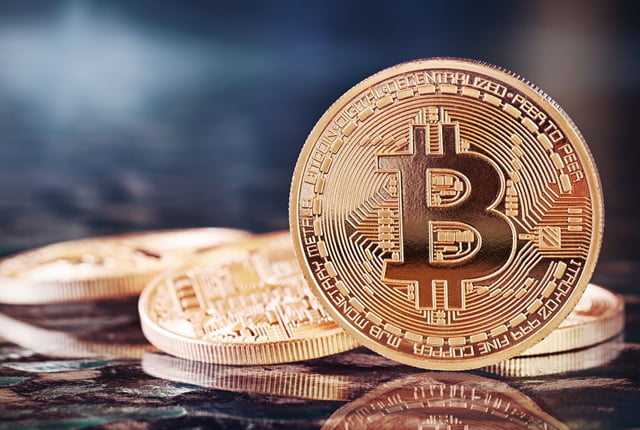The Elliott Wave theory (or principle), which is named after professional accountant Ralph Nelson Elliott who developed the concept in the late 1930s, is a form of technical analysis that traders apply to analyze financial market cycles and forecast market trends by identifying extremes in investor psychology. The theory claims that markets enter periods of mass pessimism (negative/depression) and euphoria (positive/hype) that drive prices.
The driver of this latest growth in the crypto space was cited as the increase in smart contract awareness and anonymous blockchain technologies. Digging a little deeper into the Elliott Wave theory, the move in the direction of the main trend is made of five waves, with corrections always being in three waves, and patterns repeat themselves on any time scale due to the fractal nature of the waves.
Fear & Greed
Balashevich, who has over a decade of experience in financial markets analysis, argued that the crypto markets are driven by fear (i.e. selling in panic almost at the bottom), greed (i.e. Buying close to the top in fear of missing out) and ignorance (i.e. entering an asset/project with weak fundamentals), with altcoins exhibiting particular “sensitivity to collective emotional impact as participants fear potentially missing out on rapid gains and extreme risks.”
And, having good information at your fingers should help to spot the potential danger signs. The Minsk-born CEO who came to Germany in 2000, predicted that market sentiment in the altcoin market, which encompasses all digital coins except bitcoin, remains extremely bullish. He claimed that 2017 would see a “dramatic boom”, and that this boom is just getting started.
‘Third of a Third’ Wave
On his blog from January, Balashevich wrote: “The altcoin market is entering the ‘third of a third’ wave in the Elliott Waves theory." This represents a moment the crowd realizes that the main trend — either up or down — is occurring. “Following the recent rise in bitcoin, we believe the altcoin market is set to experience a similar bull market over the course of the next six to twelve months as cryptocurrency investment enters the mainstream conscious,” he contended at the time.
Applying such wave analysis to the altcoin market since May 2013, Balashevich showed using graphs that the combined altcoin market capitalization (ex-bitcoin) was entering the so-called ‘third of a third’ wave. This point is regarded as something special in the Elliott Waves theory. Also at the time, he stated: “It represents the capitalization of the entire crypto market and we have just had a decisive breakout to new highs. This means we are most likely entering the next wave of crypto acceptance and would not be surprised to see continually rising prices for most or all major crypto assets.”
As an aside, he noted that “it is, by the way, the only time the crowd is right about price direction” and the trend gets accepted by the majority. [Thereafter] the good news keep coming and the price steadily climbs higher. For practitioners of the science of waves patterns, looking at the whole crypto market at the start of this year it was noted that the pattern was slightly different and “close to the middle of wave 3”. It still required “a few sequences of up and down to finish this wave”, the CEO suggested. That said, moves in the latter would not be “as volatile and intense” as those in the alts-only market.
By comparison at the time to the whole crypto market and based on the analysis presented, Balashevich asserted: “We can comfortably expect the alt-crypto market to rise substantially more in percentage terms than the bitcoin market over the next 6-12 months.” He added: “We might see ‘alts’ capitalization reach somewhere around $7bn. This figure is based on a typical Elliott Waves Fibonacci projection, where wave 3 is either 1.61 or 2.61 the size of wave 1. We saw wave 1 rise from $0.5bn to $2.8bn (a move of around +$2.3bn). So based on the next wave pattern, we could see an increase anywhere between $3.5bn and $6bn in the next move.” This has proven to have been exceeded.
Smart Contracts & Anonymity
Santiment, which is aimed at traders and investors that touts a network giving participants an "information edge" over the competitors thanks to machine learning and the wisdom of the crowd, predicts that areas focused on smart contracts and anonymity are set to benefit most from the next wave of investment in the cryptocurrency sector. This is given that these are areas that bitcoin has "failed to innovate on", according to the Belarusian.
“Smart contracts could potentially have the greatest effect on the way we use the internet in the not-so-distant future,” Balashevich elaborated. “One way, which already exists now, is ICOs (Initial Coin Offerings) and tokenized economies. ICOs have had their share of problems already — not all funded projects will deliver what they promise — and we might see an ICO bubble pop at some point." Adding a caveat he stated: “Yet, ICOs are by far the most democratic, transparent, and frictionless ways to fund and run modern digital companies. I have little doubt that strong communities will be able to establish proper open-source environments to get the most out of this trend.”
Noting that the start of 2017 that Ethereum appears to be the “de-facto platform of choice” for developing smart contracts and the rise of the ICO, Balashevich remarked: “Most ICOs are created here and we expect the trend to continue. The openness of Ethereum platform allows many teams to work together on building the many needed components, such as decentralized exchanges, mobile clients, CDNs (content delivery networks), oracles, prediction markets and stable cryptocurrencies…for running the modern digital companies.”
The upshot — as predicted by the German-based Belarusian — was that ETH (the cryptocurrency behind Ethereum) alone, with all incorporated Ethereum blockchain companies, “could bring in a significant portion of this additional valuation.” Ranked number two cryptocurrency behind bitcoin, some have dubbed Ethereum ‘Bitcoin 2.0’. Trading at $46.43 today (April 12), its market cap currently stands at over $4bn. This is significantly up from just over $8 a pop at the start of this year with a then market cap of around $722 million. It rose to the $30 mark by the middle of this March before reaching a peak at the end of last month — touching $53. But even with the recent dip in price, it has still added to the overall altcoin market capitalization.
Still, one has to question if the altcoin market's performance overall is heavily dependent on the contribution of Ethereum for its market cap, what happens if there is a reversal in its price? On that score, only time will tell. But with hundreds of cryptocurrencies on the market one has to figure that there is junk out there amongst the winners. A point in fact, which Jack Tatar, CEO & President of Research at GEM Research in New York and co-author of 'What's The Deal With Bitcoins?', underlined in an engaging presentation ('Blockchain Assets & Investing In The Future') during a Coinsbank-hosted event last October in Turkey. As I recall his precise words at the time were "some real garbage out there." So it pays to pick wisely and do your research.
Crowd Sentiment
Santiment’s crowd sentiment platform claims that it enables users to access “sentiment data that cannot be found anywhere else.” The theory and sales patter says that this should enable faster and more profitable crypto-trading decisions. Furthermore, it can be used to earn tokens — Santiment Network Tokens — in ‘crypto-financial’ games or spend them to access what are described as “exclusive market insights.” By using their platform users are able to receive clear market analyses, chart trading data, visualize and compare sentiment data with friends to "turn weaknesses into strengths", and, benefit from a 'Battle-test' simulator.
Earlier this year on February 13, Santiment raised 12,000 Ethereum (ETH) in an initial crowdfunding campaign in a matter of 2.5 hours, which is the equivalent today to around $525,000. The start-up, which had been a fair while in planning, stated after reaching its pre-sale goal that the venture would go to work on its white paper and MVP (Minimum Viable Product). It has also forged a number of partnerships that includes universities in Germany.
Predicting The Market
One might well ask is it possible at all to predict the market and the crypto market come to that? On that notes and as Balashevich noted in a separate blog at the back end of last year: “The truth is, no one can make predictions with 100% accuracy. It’s just the nature of the beast. I’ve come to accept that if no one can absolutely predict the market, it means we’re all in the same boat, guessing what will happen next.” Phew, so we are not alone on that front. But whatever investors in the crypto space do, it should go without saying don’t forget to store your crypto assets securely. Any gains built up over a sustained period of time in a cryptocurrency could be wiped out if this aspect not addressed properly.
Chuck Reynolds
Contributor










